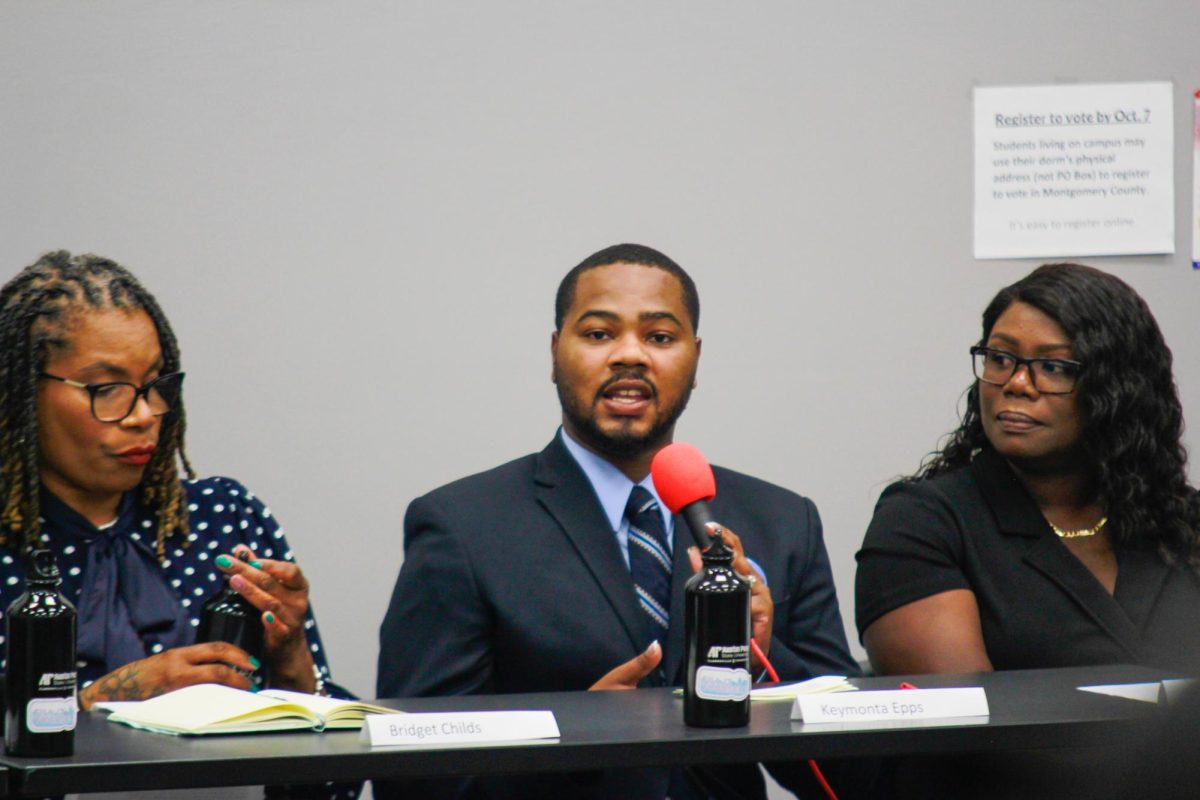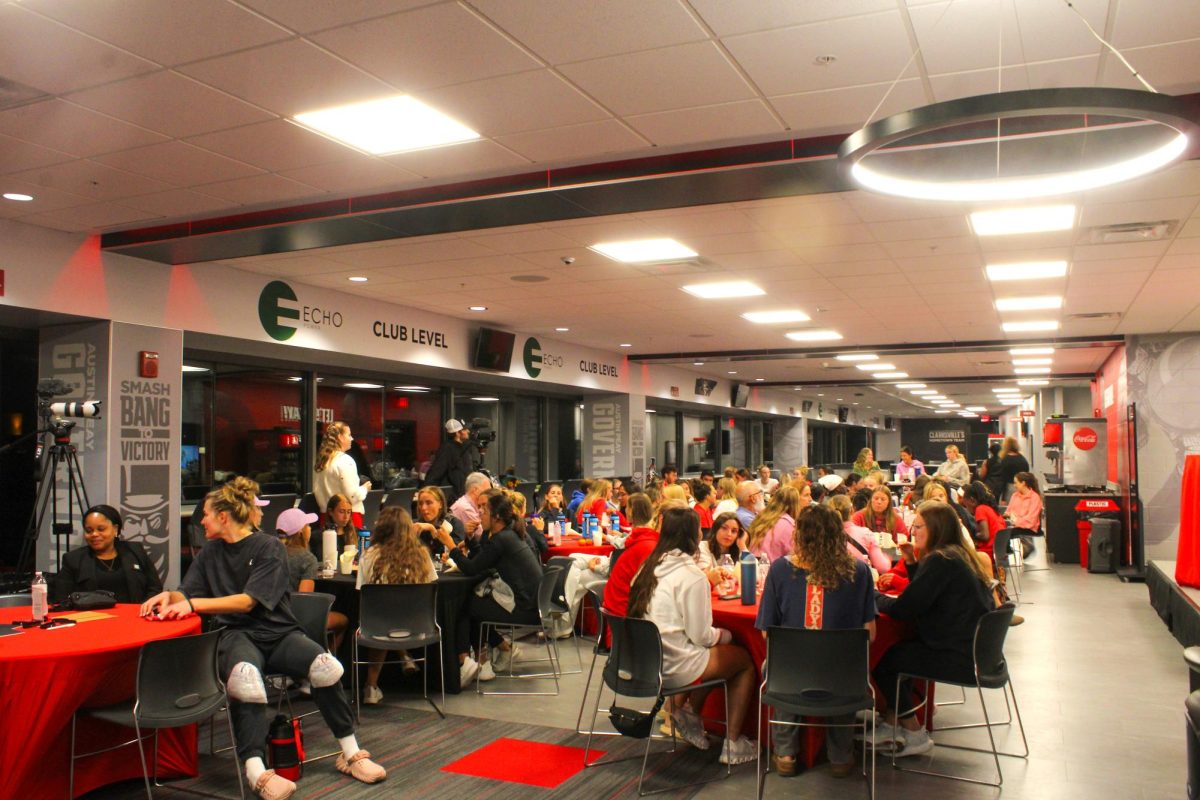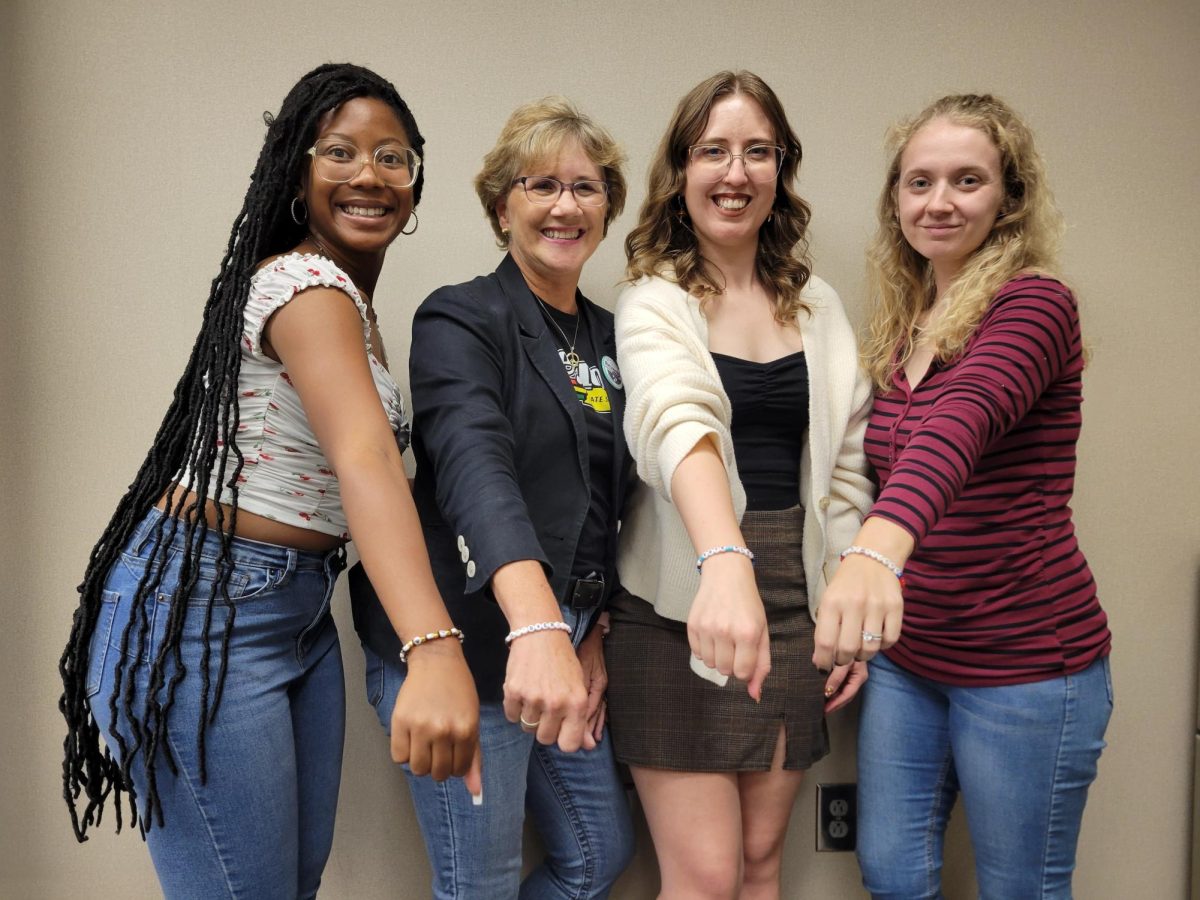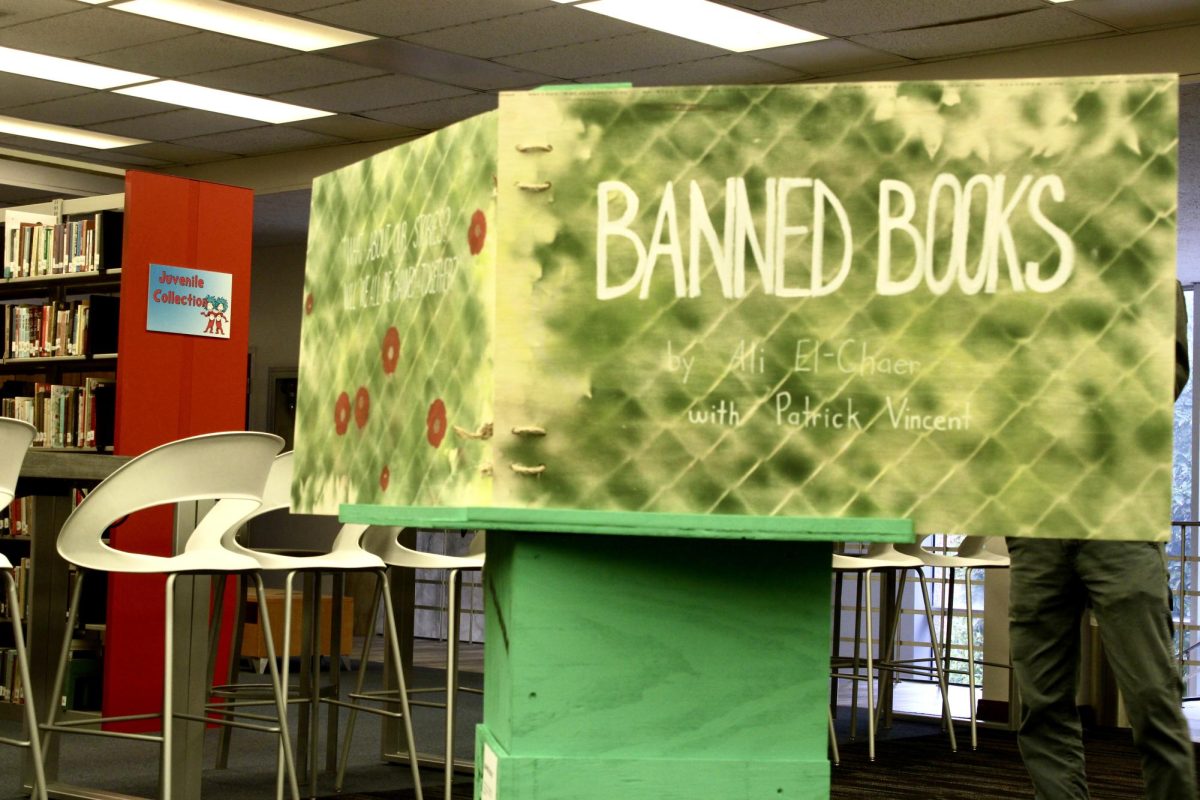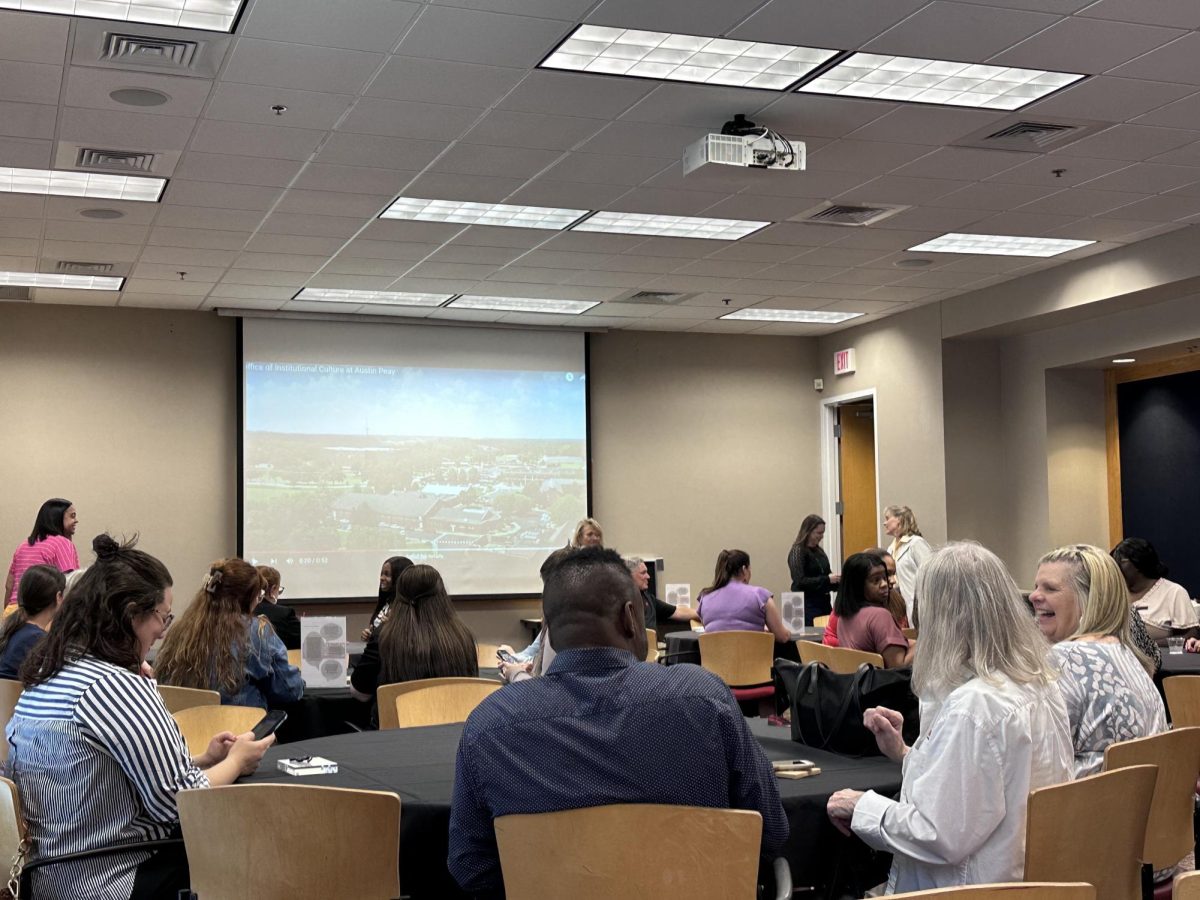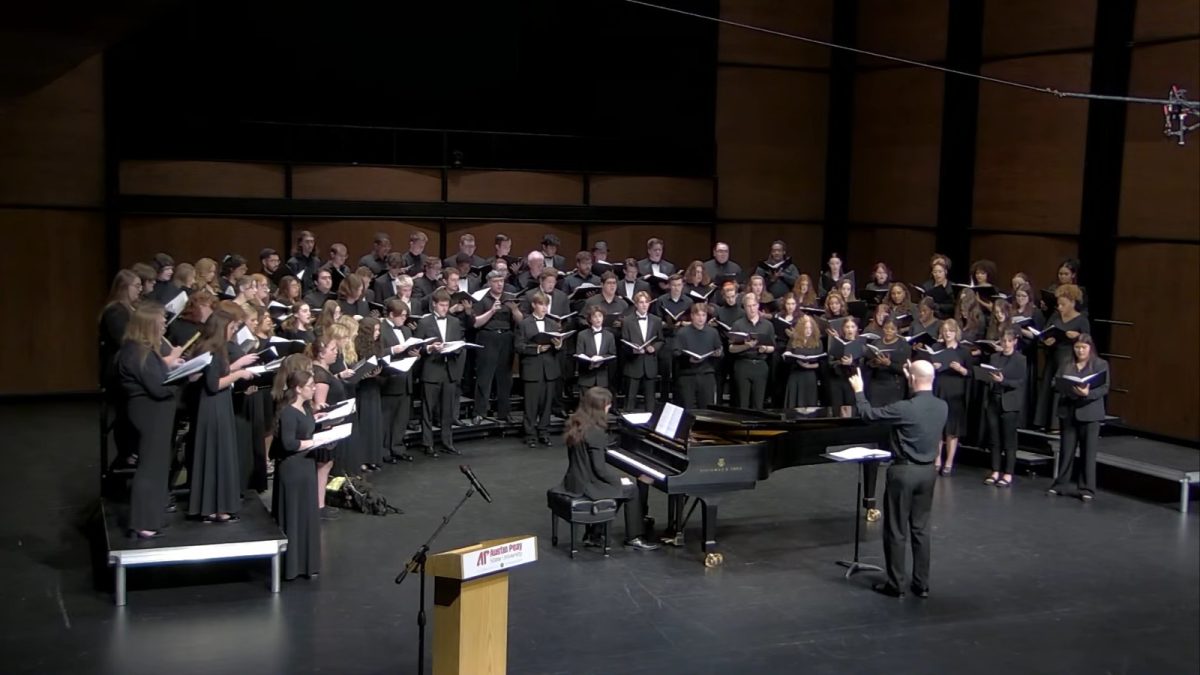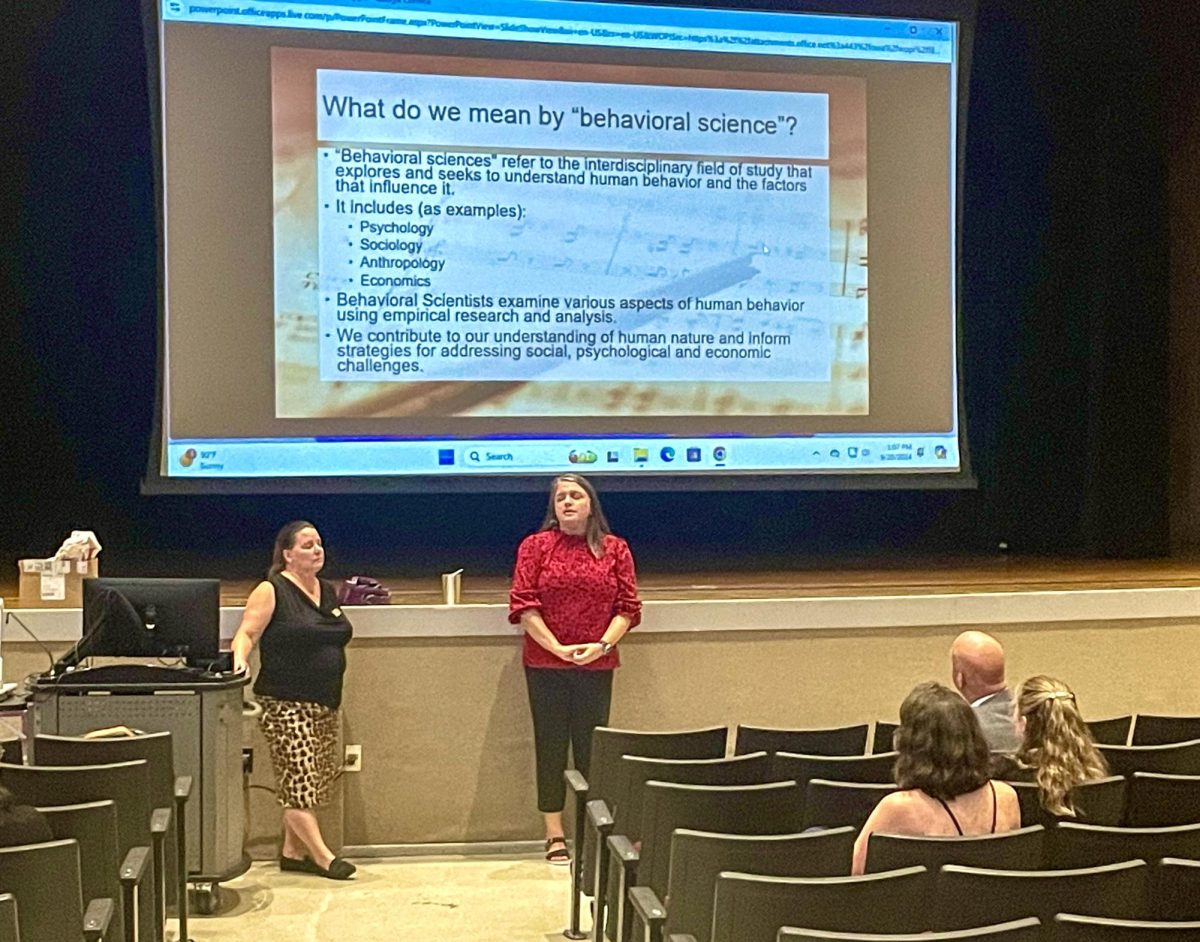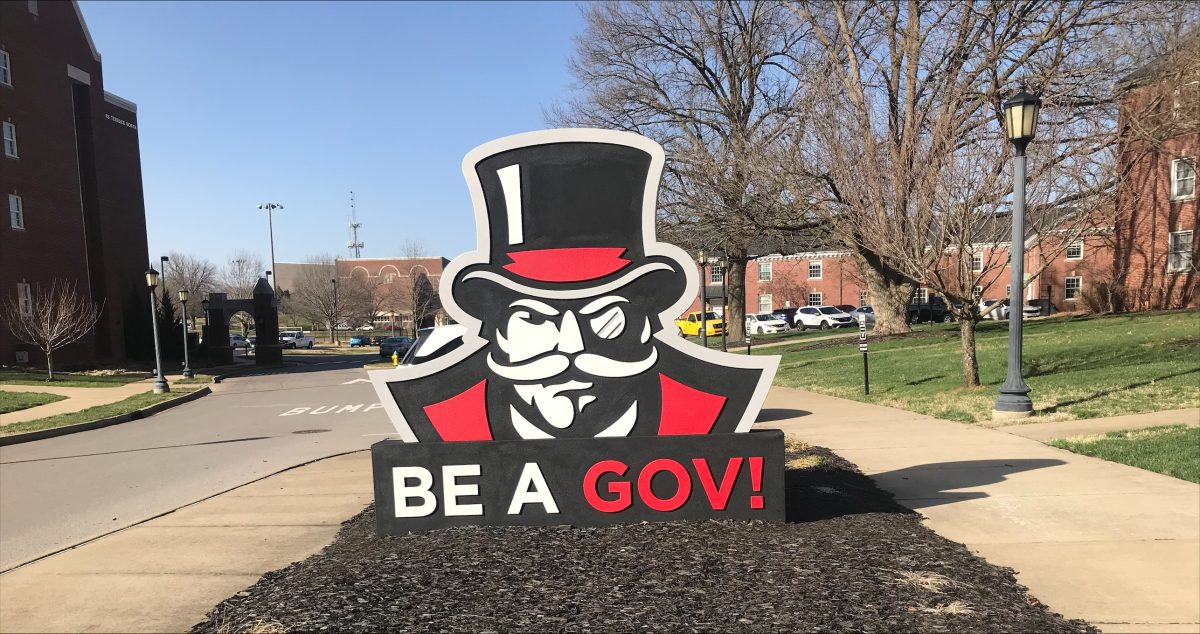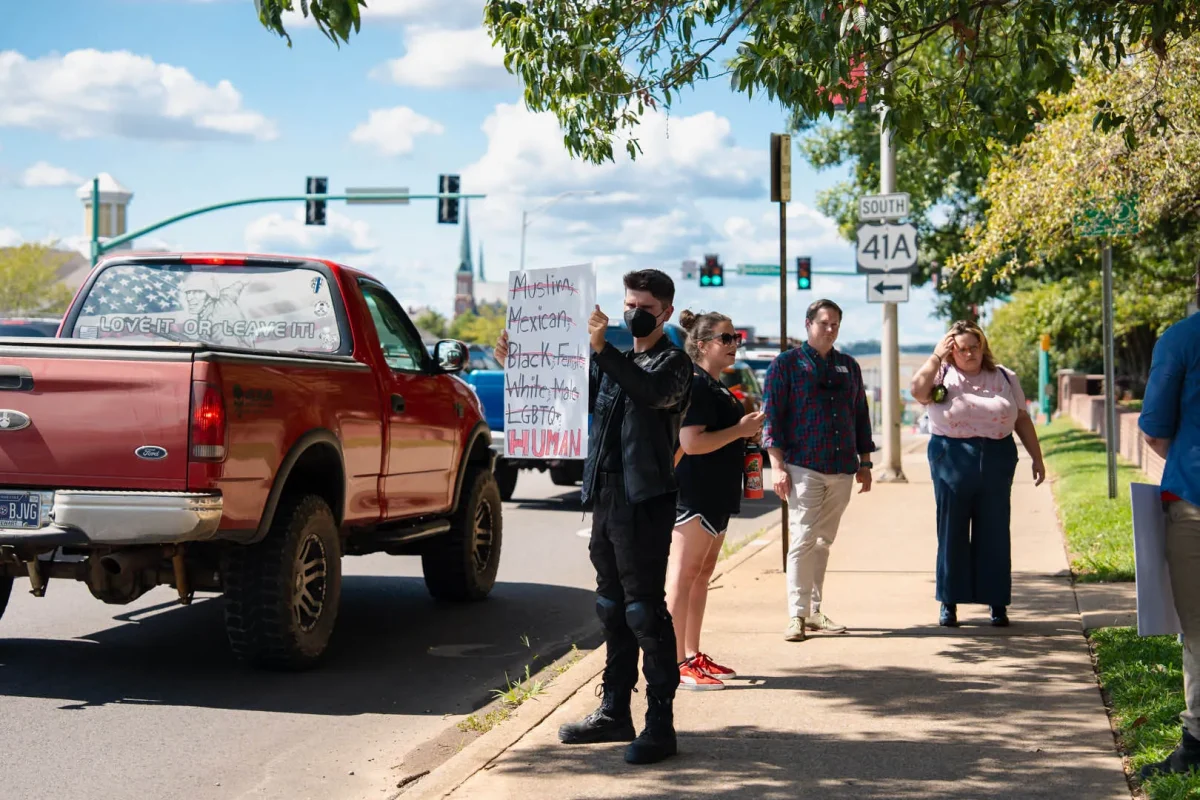Candidates running for local and state office speak on sustainability plans for Clarksville at APSU’s Sustainability Forum hosted on Sept. 12. Photo by Brooklyn Lisenby | THE ALL STATE.
On Thursday, Sept. 12th at 4:30pm, Austin Peay State University and the Clarksville Sierra Club partnered together to host a Sustainability Forum in the Sundquist Science Complex. This event allowed candidates running for local and state office an opportunity to discuss their plans for sustainability in Clarksville once elected to office.
Seven candidates running for local offices were questioned by the Sierra Club chair, JoAnn McIntosh, who also served as moderator of the event. The Sierra Club is a large environmental organization that advocates for outdoor spaces and to protect wild places in the United States.
All candidates running for local offices were asked five questions total, and each given two minutes to answer every question. Live questioning from the audience was not permitted due to time constraints.
“I think that we have a wealth of experts here… obviously at Austin Peay State University, and at Ft. Campbell… who could definitely assist in this sort of thing,” says Joshua Wikholm, one of the local candidates running for Ward 3. Wikholm is a current APSU student majoring in political science and served in the U.S. Army for 11 years.
“We have a lot of people here in town, again APSU, we have the county extension office, we have the military base. They’re meant to be self-sustaining mini cities. They have a lot of knowledge as well. It’s just gathering those who have experience… give them a problem, and letting them solve it,” says Councilwoman Ambar Marquis, who is running for Ward 5.
“I do agree that we need to utilize APSU and their resources… they have the resources that we need to be able to bring the issues at hand to the forefront,” says Keymonta Epps, who is running for Ward 9.
A majority of the candidates agree that utilizing the sustainability resources of APSU could benefit the entire city of Clarksville, as well as learning how APSU became self-sufficient on a lot of their own resources.

